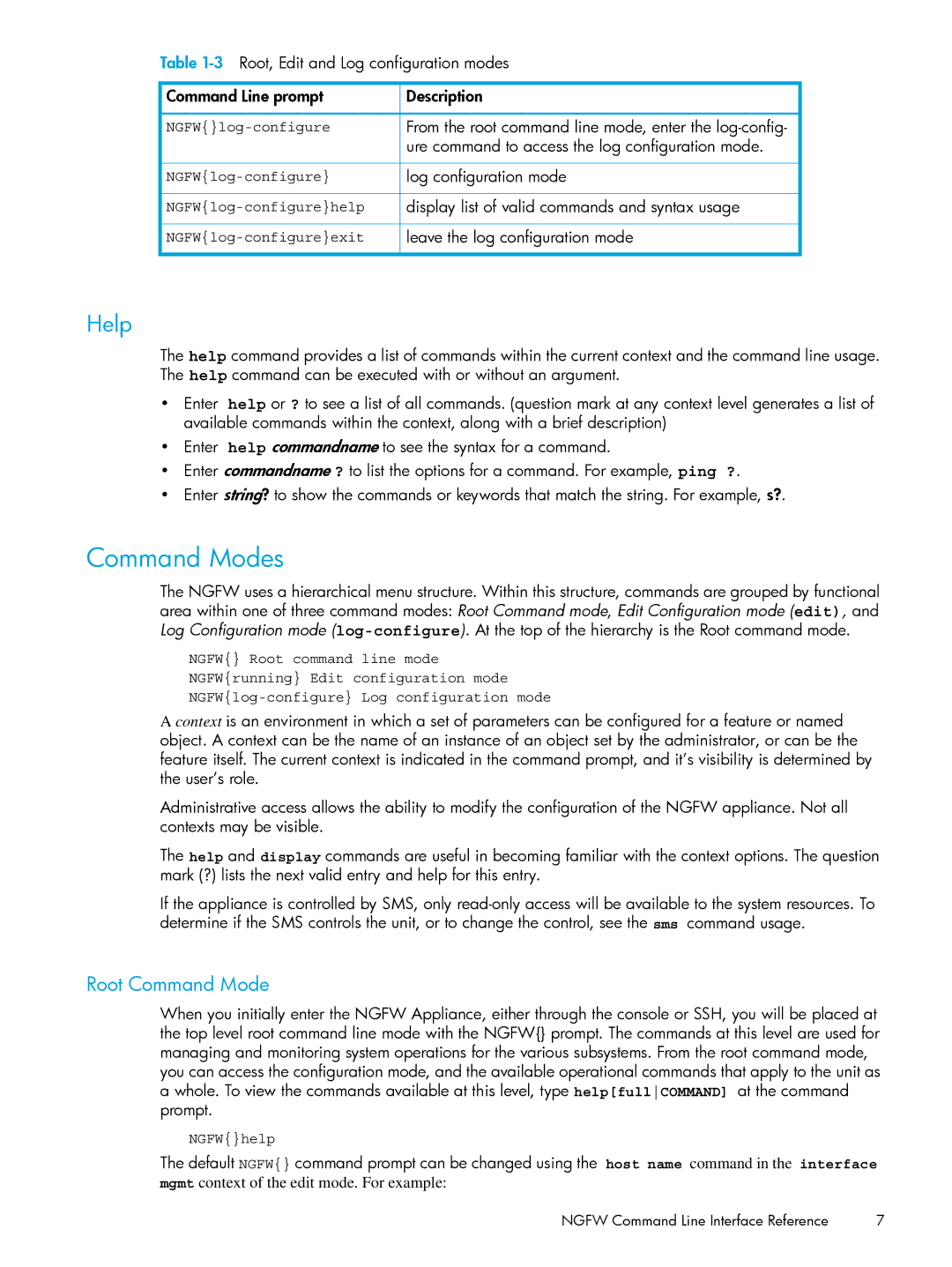Table
Command Line prompt | Description |
|
|
From the root command line mode, enter the | |
| ure command to access the log configuration mode. |
|
|
log configuration mode | |
|
|
display list of valid commands and syntax usage | |
|
|
leave the log configuration mode | |
|
|
Help
The help command provides a list of commands within the current context and the command line usage. The help command can be executed with or without an argument.
•Enter help or ? to see a list of all commands. (question mark at any context level generates a list of available commands within the context, along with a brief description)
•Enter help commandname to see the syntax for a command.
•Enter commandname ? to list the options for a command. For example, ping ?.
•Enter string? to show the commands or keywords that match the string. For example, s?.
Command Modes
The NGFW uses a hierarchical menu structure. Within this structure, commands are grouped by functional area within one of three command modes: Root Command mode, Edit Configuration mode (edit), and Log Configuration mode
NGFW{} Root command line mode
NGFW{running} Edit configuration mode
A context is an environment in which a set of parameters can be configured for a feature or named object. A context can be the name of an instance of an object set by the administrator, or can be the feature itself. The current context is indicated in the command prompt, and it’s visibility is determined by the user’s role.
Administrative access allows the ability to modify the configuration of the NGFW appliance. Not all contexts may be visible.
The help and display commands are useful in becoming familiar with the context options. The question mark (?) lists the next valid entry and help for this entry.
If the appliance is controlled by SMS, only
Root Command Mode
When you initially enter the NGFW Appliance, either through the console or SSH, you will be placed at the top level root command line mode with the NGFW{} prompt. The commands at this level are used for managing and monitoring system operations for the various subsystems. From the root command mode, you can access the configuration mode, and the available operational commands that apply to the unit as a whole. To view the commands available at this level, type help[fullCOMMAND] at the command prompt.
NGFW{}help
The default NGFW{} command prompt can be changed using the host name command in the interface
mgmt context of the edit mode. For example:
NGFW Command Line Interface Reference | 7 |
